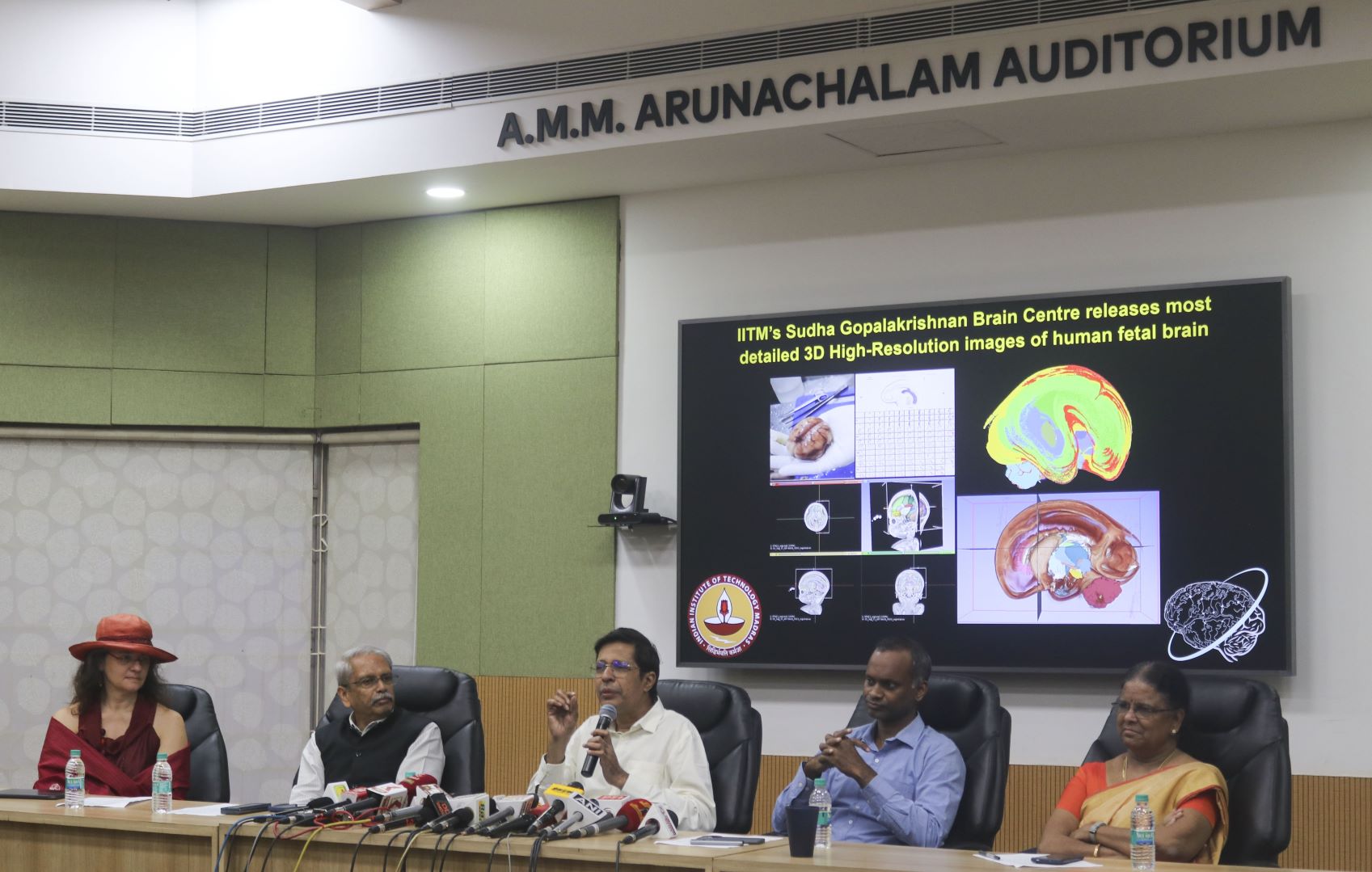IIT Madras releases most detailed 3D high-resolution images of human foetal brain
December 10, 2024 | Tuesday | News
Leading to the development of treatment for health conditions affecting the brain
Indian Institute of Technology Madras (IIT-M) has become the first research organisation in the world to release the most detailed 3D high-resolution images of the fetal brain.
This pioneering work from the Sudha Gopalakrishnan Brain Centre of IIT Madras pushes the frontiers of Brain Mapping Technology and places India in the global league of brain mapping science as this is first-of-its-kind work anywhere in the world.
This Data Set, termed ‘DHARANI’, is available open source (https://brainportal.humanbrain.in/publicview/index.html), making it freely available for all researchers world-wide.
For the first time globally, 5,132 brain sections have been captured digitally using cutting-edge Brain Mapping Technology developed by Sudha Gopalakrishnan Brain Centre in the Institute. This work will advance the field of Neuroscience and potentially lead to the development of treatment for health conditions affecting the brain.
This monumental work is the first time such advanced human neuroscience data has been produced from India. The project was done at less than 1/10th of the costs in Western Countries. The research was undertaken by a multidisciplinary team at IIT Madras with researchers from India, Australia, US, Romania and South Africa, and medical collaborations with Chennai-based Mediscan Systems and Saveetha Medical College Hospital.
This research, led by Prof. Mohanasankar Sivaprakasam, Head, Sudha Gopalakrishnan Brain Centre, IIT Madras, is critical for India as the country accounts for nearly one-fifth of the world’s childbirths at 25 million each year.
This makes it vital for the country to understand the brain development from the foetus to a child, to adolescence, and to a young adult, and developmental disorders like learning disabilities and autism.
This work was supported by the Office of Principal Scientific Adviser to the Government of India, Kris Gopalakrishnan, IIT Madras Distinguished Alumnus and Co-Founder, Infosys, Premji Invest, Fortis Healthcare and Agilus Diagnostics. NVIDIA, the leading AI company, partnered with the Centre to help process these petabytes of brain data.
The key applications of generating such high-resolution brain images are advancements to current fetal imaging technologies, for early diagnosis and treatment for developmental disorders.
The Sudha Gopalakrishnan Brain Centre has created this comprehensive cell resolution atlas of the human foetal brain in the second trimester. This detailed atlas, where the researchers have identified and marked over 500 brain regions, will serve as an important global reference for advancing human neuroscience research for decades to come.










